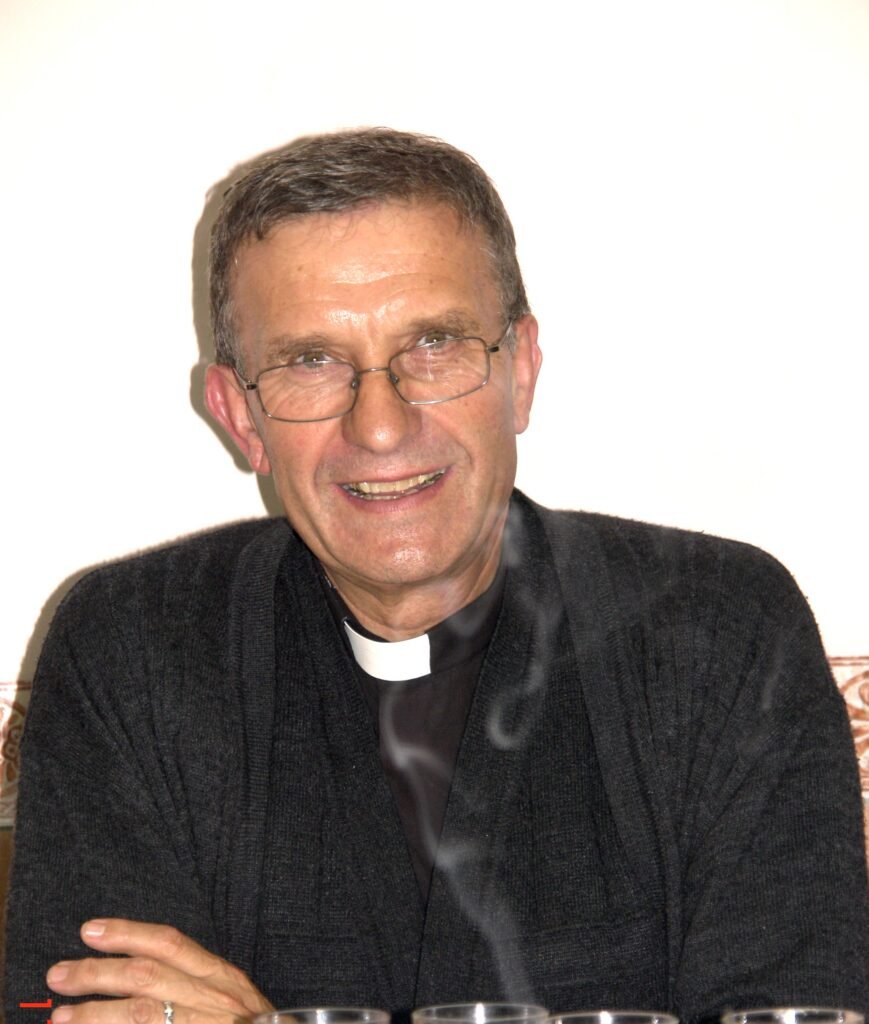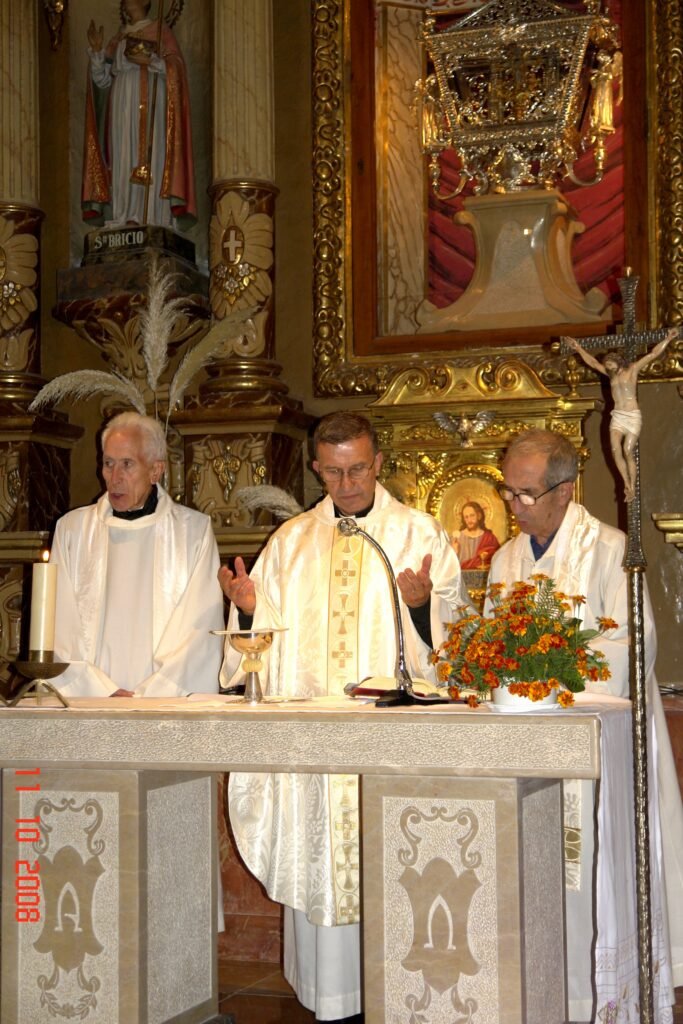A Forcallano in the Andes: Father Javier Obón Molinos

Forcallanos with global impact.
Despite its modest size, Forcall has been a cradle of ambitious entrepreneurs and citizens with global impact. In 1609 Blay Berga founded the Dominican Convent in Forcall, designed to house a seminary school of Grammar, Philosophy and Theology.
In 1611, Father Balthasar Fort became Vicar Provincial of the Dominican Order in Japan and the Philippines and founded the University of Santo Tomas de Manila.

(Photo taken from Eixarch Frasno, 1994,
Ayuntamiento de Forcall)

(Taken from War Dept., US Natl. Archives, John Tewell)
In 1943, in a family of small merchants, Father Javier Obón Molinos was born in Forcall. In 1993, following his vocation as a missionary priest, he traveled to Ayacucho, Peru. Until his death in 2016 he served the underprivileged in sixty rural communities neighboring his parish of Santa Rosa de Ayacucho that had been devastated by rural terrorism.
Promotes the creation of two dining halls for 600 children and founds two vocational training schools for adults
The Padre Javier descended from hard-working ancestors. His ancestors are found in the old farmhouses of the Maestrazgo de Castellón and Teruel: the Mas de Farinetes in Morella; the Mas dels Frares or de Liborio in Forcall, where the remains of an ancient Roman city are found; and the Mas del Huergo in Las Planas de Castellote. Country people and farmers, his parents ran a shop in their hometown, Forcall. With a deep appreciation of work and family.
He was the fourth of seven brothers who, like another of them, Joaquin, embraced the priestly ministry. His sense of vocation and work took him to the extreme to announce the Gospel to men. As the Bishop of the diocese of Tortosa, Monsignor Enrique Benavent, said with emotional words during the funeral Mass in Forcall: “He was a worker of the Gospel”.

Tireless, he left his life and his health in Ayacucho, where he wanted to stay among people who loved him. There, his remains rest and his soul will enjoy being among the chosen ones of the Lord. He was made of the same wood as the saints. He always trusted in God to carry out his undertakings and, like a good sower, he spread his seed in the fields to which God sent him. In a hard soil, which he cultivated with love and effort so that it would bear fruit. Simple people, with a primary religiosity and, in many cases, far from the Gospel. He encouraged them to form Christian families and tried to cover their most basic needs of food, work, health and education. But, above all, he cultivated religious values. He encouraged the youth to follow Christ: in the Seminary; in the parishes; at work. And it paid off.
With great naturalness and an overwhelming personality, he made the difficult easy. He undertook just causes that seemed disproportionate to his strength and let God do the rest. He was not discouraged and always found people who followed him in his endeavor while he dedicated his intelligence to obtaining the necessary resources.
He left an indelible mark of kindness in the places he visited. He cared little for himself and much for others. He devoted his wealth and work to covering the needs of others, and Divine Providence did not abandon him. He was always dedicated to the parishes he ran; to religious communities; to the seminary; to youth; to families and to people of all conditions. In the Ayacucho Mission, he promoted: canteens for children, which also provided what was necessary for their schooling; vocational training centers; the use of tools for work; primary health care. Unconditional people helped him to raise, build and maintain his projects. Letters to Spain, to the institutions, always pulling strings here and there.
He easily fit into the way of life of the Ayacucho people and dedicated himself entirely to the evangelical mission. We asked him on one occasion if he had visited Machu Picchu, one of the wonders of the world that was within easy reach, and he confessed to us that in the many years he had been in Peru, he had not had time to go sightseeing, and that he watched it on television. Those of us who knew him closely were dazzled by his personality, his clarity of ideas, his kind and affable nature and his vigorous defense of just causes.
He has left an indelible mark on us. God will surely have rewarded him for being a tireless servant.
A summary of his life and work can be found here.